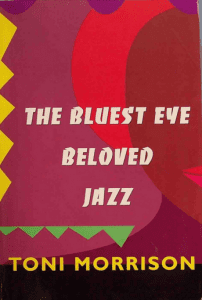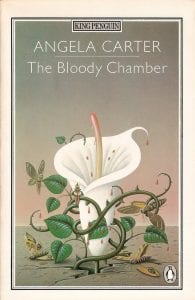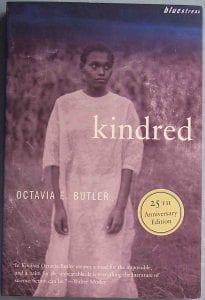From Modernism to Post-Colonial writing and Science Fiction, the literature canon has forever been evolving; however, today we’ll be bringing to you our top must reads from Penguin’s Classics for World Book Day.
1. The Bluest Eye by Toni Morrison

Toni Morrison’s The Bluest Eye (1970) foretells the journey of a young black girl and her struggle to fit into the era’s dominant Eurocentric ideals of beauty. The protagonist, Pecola Breedlove’s inability to fulfil these ideals, which forms the titular “The Bluest Eye” paves her descent into madness and is chronicled by the novel. Her characterization is juxtaposed with other black female characters such as Claudia, who resist and repudiate the placement of these ideals onto them by mainstream culture.
The Bluest Eye is a must read for those interested in exploring Intersectional Feminism further or want to learn more about the internal effect of racism within families in the 1970s and today.
2. The Bloody Chamber and Other Short Stories by Angela Carter

Published in 1979, The Bloody Chamber and Other Stories promises a Gothic retelling of the original Brothers Grimm Fairy tales or as Carter puts it, ‘extract the latent content from traditional stories and to use it as the beginnings of new stories.’
The Bloody Chamber itself plays upon the classic fairy tale Bluebeard, the story of a nobleman who murders his wives and places their bodies in an isolated room within his castle.
However, Carter’s analysis of the male gaze, female masochism and rejection of traditional fairy tale archetypes such as: the damsel in distress or the saviour Prince puts an eloquent spin on the story, accentuated further in the resolution.
The Bloody Chamber is an additional fantastic read for Women’s Day with its coming of age narrative of a young woman and evaluation of the panoptic, male gaze’s influence in society.
3. Kindred by Octavia Butler

The 1979 novel Kindred is a Speculative Fiction novel, whose publication following the Golden Age of Science Fiction, challenged and revolutionized the Science Fiction canon of predominately male writers.
In Kindred, the past is brought into discussion with the present as the Science Fiction genre enables the protagonist of the novel, Dana Franklin, an African American writer to travel to her ancestral past—a slave plantation in 1815, Maryland.
The novels share some parallels with the popular Spanish Netflix series, Always a Witch, known as Siempre Bruja to its Spanish audience. Both observe the practice of slavery; however, while the Spanish series is set in 17th-century and present-day Spain, Kindred takes place in 1970s California with the protagonist time travelling to save Rufus Weylin, her white slave master ancestor in order to ensure her own survival in the future.
Always a Witch on Netflix is such an AMAZING show 10/10 would recommend pic.twitter.com/QMKIBKTEtJ
— Rachel✡ (@rachel_riede) March 3, 2019
4. Money: A Suicide Note by Martin Amis
The 1984 novel Money: A Suicide Note explores the effect of the neoliberal movement in the 80s defined by privatization, cutting down expenses spent on social welfare and deregulation, thereby placing all responsibilities on the individual.
Margaret Thatcher’s famous quote: “There is no such thing as society. There are individual men and women and there are families. And no governments can do anything except through people, and people must look to themselves first’ became a defining statement to describe neoliberalism..
The freedom given to the individual is observed through a cultural, pornographic excess in the novel. Pornography encapsulates the environment of the protagonist, John Self, from the tiles of restaurants: ‘Long Whoopers’ and ‘Big Thick Juicy Hot One’ to the description of his girlfriend, Selina Street, who looks like ‘a nude magazine’.
Martin Amis’ satirical projection of the 80s via the antihero, John Self, is relevant to topics discussed even today, for example the depiction of masculinity and the ‘crisis of masculinity.’
Masculinity is Martin Amis’s great subject. No other male writer has so skewered the delusions of male grandeur. http://t.co/7qbq3R6t
— Arts & Letters Daily (@aldaily) April 30, 2012
The fiction of Martin Amis: "violent, unfettered, full-throttle masculinity" http://t.co/mXU5wUUQ by @MortenHoiJensen in @la review of books
— Ted Gioia (@tedgioia) April 28, 2012
See also: Five Books About Climate Change You Need to Read Now


